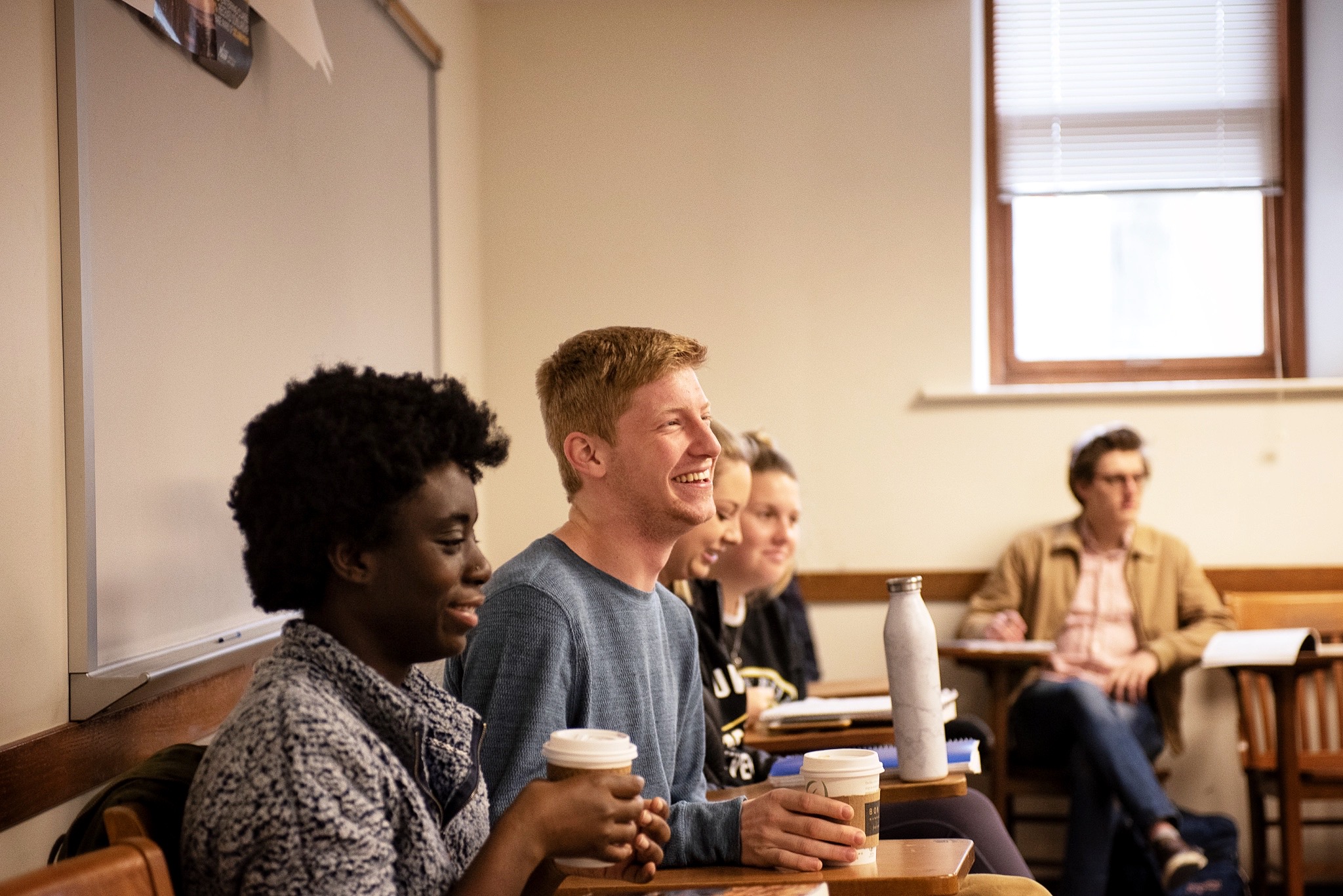The student-centered classrooms and personal attention that Paul Johnson experienced as a student at DePauw affected him so significantly that he employs similar techniques with his own DePauw students these days.
“I think by nature I wasn’t a very extroverted student,” he says. “But the mentorship I got from professors was so important. Being able to have those relationships with faculty members and that encouragement really paid off.”
Johnson, assistant professor of Hispanic studies, director of world literature program and Bonner Scholar faculty adviser, graduated from DePauw in 2004 with a major in romance languages with an emphasis in Spanish and French.
The language, culture and ability to travel abroad were especially appealing parts of his major, he says. But a study-abroad program in Barcelona “really cemented it as a major for me.”
He had a “vague notion” during his undergraduate years about wanting to go to grad school, but no one in his family had done so.
“But fortunately, I had mentors like Art Evans (emeriti professor of modern languages, French) and Bob Hershberger (professor of modern languages, Spanish) who saw a talent in me that I wasn’t aware of at that time. They’re the ones who talked to me about grad school as a possibility, and encouraged it.”
Johnson earned a master’s degree in Spanish from Middlebury College in Spain and a Ph.D. in Spanish literature from the University of California, Irvine. He worked as an instructor at DePauw during the summers of 2007-11 and 2013, then joined the full-time faculty in 2014.
“I feel very fortunate to have had the privilege to come back to DePauw and work alongside some of my former mentors and continue to benefit from that support and mentorship.”
Johnson touts the benefits of studying romance languages, especially Spanish, the first language of a growing percentage of the population – on campus, in the community and nationwide. “I think it’s a really a mandate of American citizenship these days to be able to study and engage with others in a foreign language,” he says.
He tells his students of the broader cognitive benefits of studying languages, too, such as higher earnings, employability, a healthier brain and longevity.
Johnson will take on a new role this summer as director the the Servicio program, in which he participated for six summers as a grad student, including the program’s inaugural summer.
“It was a hugely impactful experience for me – for learning the ropes of teaching, the immersion experience and for my professional development. I can’t overemphasize how transformative it was for me.”
Johnson recently taught a Hispanic studies senior seminar course titled Early Modern #MeToo. He developed it after conducting research about gender studies’ approaches to literature.
“There’s a lot of early modern texts that have similar issues and challenges to the patriarchy and women confronting similar situations. So, I thought that could be an interesting and relevant lens to approach the seminar through.
“I always want to make the curriculum accessible and relevant,” he says. That can be a challenge for someone teaching 16th- and 17th-century Spanish literature. “It's something I’m very passionate about, but it doesn’t always translate that readily to students. So I always think of ways of how to make it relevant today.”
Johnson had no idea when he planned the course that it would be a class of all women. “I tried to be very aware of that dynamic and the power dynamic that’s already a part of a classroom,” he says.
Molly Brennan ’19 says the seminar was her favorite course. “Professor Johnson told us on the first day of class that we have just as much to teach him as he has to teach us, especially on this subject,” she says.

Browse other stories
-
Athletics
-
Football - 336 Students Named to 2025 Spring Tiger Pride Honor Roll
-
Football - DePauw-Record 190 Student-Athletes Named to NCAC's Dr. Gordon Collins Scholar-Athlete Honor Roll
-
Football - DePauw Unveils 2025 Athletics Hall of Fame Class
More Athletics
-
-
News
-
Outstanding scholars named to Spring 2025 Dean's List
-
Alumni News Roundup - June 6, 2025
-
Transition and Transformation: Inside the First-Year Experience
More News
-
-
People & Profiles
-
11 alums make list of influential Hoosiers
-
DePauw welcomes Dr. Manal Shalaby as Fulbright Scholar-in-Residence
-
DePauw Names New Vice President for Communications and Strategy and Chief of Staff
More People & Profiles
-
-
Have a story idea?
Whether we are writing about the intellectual challenge of our classrooms, a campus life that builds leadership, incredible faculty achievements or the seemingly endless stories of alumni success, we think DePauw has some fun stories to tell.
-
Communications & Marketing
101 E. Seminary St.
Greencastle, IN, 46135-0037
communicate@depauw.eduNews and Media
-
News media: For help with a story, contact:
Bob Weaver, Senior Director of Communications.
bobweaver@depauw.edu.